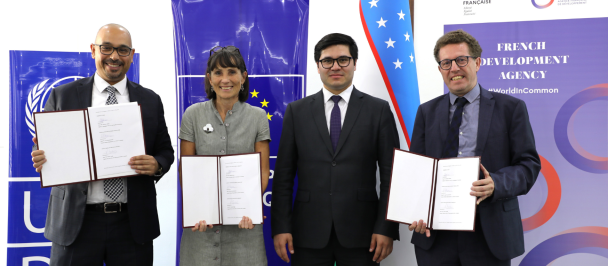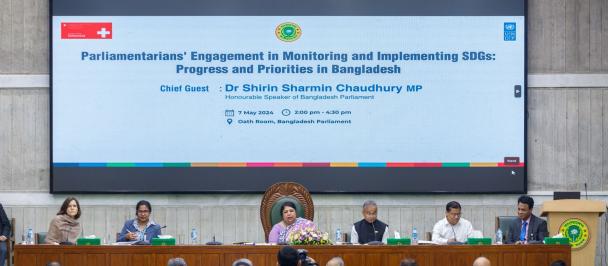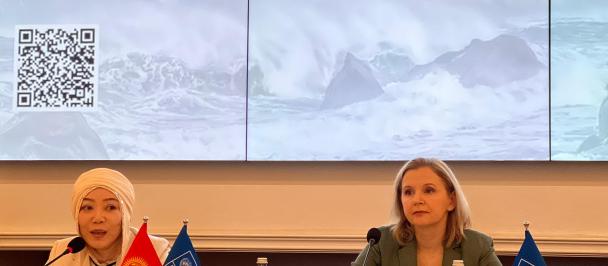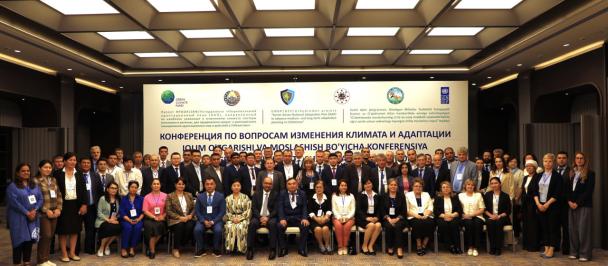Kyrgyzstan and the Road Ahead to Strengthen the Response to Climate Change
December 19, 2023
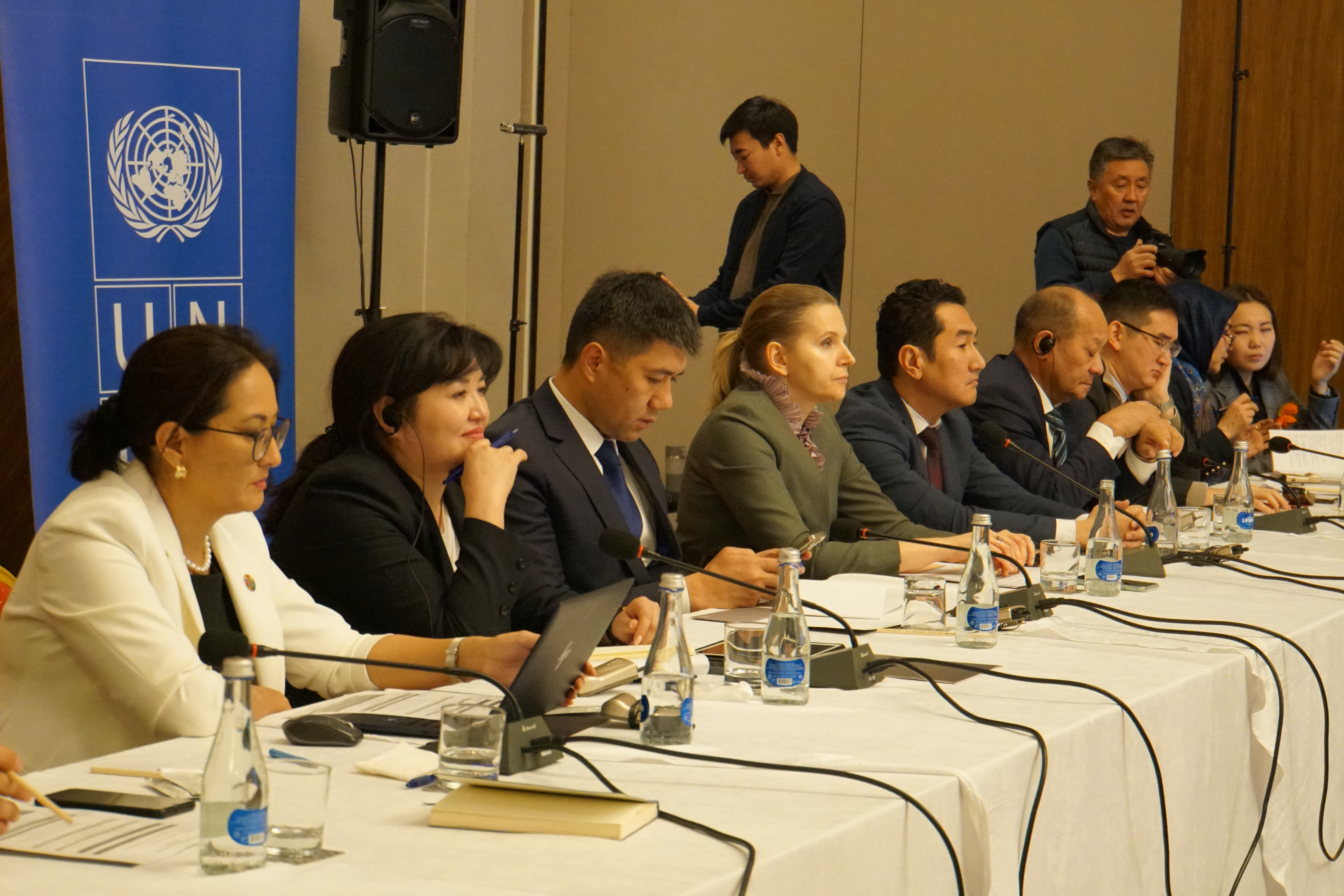
19 December 2023, Bishkek –– Today, UNDP gathered the multi-stakeholder setting, representing climate actors from all sectors and levels in Kyrgyzstan, to share the outcomes of the national delegation's participation at the 28th session of the Conference of the Parties (COP28). The aim was also to delve into a deeper reflection and lessons learned to strengthen the response to climate change.
Efforts to implement the goals of the 2015 Paris Agreement, which seeks to limit the global temperature increase to "well below" 2.0 degrees Celsius above pre-industrial levels and to pursue efforts to limit temperature increases to 1.5 degrees Celsius, were at the heart of COP28 in Dubai, United Arab Emirates. In a demonstration of global solidarity, tens of thousands of people representing governments, businesses, and civil society from nearly 200 countries, including Kyrgyzstan, attended the most unusual climate talks.
During this year's negotiations, member states faced their first Global Stocktake (GST), a scorecard analyzing countries’ progress towards the Paris Agreement so they can develop stronger climate action plans due by 2025.
Negotiators at COP28 agreed on commitments to triple renewable energy capacity and double energy efficiency by 2030. They also made progress on adaptation and finance, particularly by operationalizing the Loss and Damage Fund. More than US$700 million has been pledged to the new Loss and Damage Fund to finance developing countries' actions when there is no realistic possibility of adapting to climate impacts.
The main debate was over whether the COP decision would call for a "phase-out" or "phase-down" (or some alternative) of coal and other fossil fuels. For the first time in the history of UN climate conferences, participants at COP28 in Dubai endorsed a roadmap for "transitioning away from fossil fuels."
Kyrgyzstan's visionary commitment to climate action, as articulated by President Sadyr Japarov at COP26, has gained global recognition and applause. This commitment was emphasized once again during COP28. It is significant that the country has prepared for carbon neutrality by 2050 with the support of UNDP, as well as the NDC plan with a focus on implementation measures enabled by transparency. This approach can help identify new opportunities in the future.
Mr. Melis Turganbaev, Minister of Natural Resources, Ecology, and Technical Control, stated: “Considering the decisions adopted at COP28, it is imperative that we translate our commitments into tangible actions by implementing strategic programs and projects. Our focus should be on the development of environmentally oriented businesses, the integration of green economy principles into sectoral policies, and the introduction of low-waste, resource-saving technologies.”
Ms. Alexandra Solovieva, UNDP Resident Representative in the Kyrgyz Republic, noted: “Consistent work from COP to COP is also important for Kyrgyzstan. It should be noted that the country has already prepared the concept of carbon neutrality by 2050 with the support of UNDP, as well as the NDC implementation plan. Our next stage will be the formation of the National Adaptation Plan and sectoral plans in vulnerable sectors, and expanding the transparency framework for monitoring, reporting, and verification of our climate obligations. It is important to note that Kyrgyzstan, along with other mountainous countries, received support for the initiative to start a new global dialogue on mountains and climate. The final global analysis (GST) recognized the unique role of mountain ecosystems in the global climate system.”
UAE’s COP28 presidency set four themes for the summit:
Fast-tracking the energy transition: revolves around renewable energy, and food and agricultural systems.
Fixing climate finance: aims to prioritize the Global South in adaptation finance and help vulnerable communities rebuild after climate disasters, among other targets.
Nature, people, lives, and livelihoods: geared towards food systems, nature-based solutions, and protecting against extreme weather events and biodiversity loss.
Inclusivity in climate management: includes youth involvement and improved communication between different sectors and agencies.
The climate-nature nexus and the “importance of protecting, conserving, and restoring nature and ecosystems” are at the core of COP28 decisions. The joint statement was issued to continue this track, boosting nature-based solutions.
The next two years are crucial. At COP29, governments must establish a new climate finance goal, reflecting the scale and urgency of the climate challenge. And at COP30, they must come prepared with new nationally determined contributions that are economy-wide, cover all greenhouse gases, and are fully aligned with the 1.5°C temperature limit.
Hence, today’s event is the opportune moment for a deeper reflection, discussing the outcomes of the Dubai summit and exploring what lies on the road ahead post-COP28. The event has provided a platform for joint discussions on the plans to be conducted in the future and was organized by the Ministry of Natural Resources, Environment, and Technical Supervision with the support of UNDP's Climate Promise Initiative.
Contacts for the media:
Ainagul Abdrakhmanova, Communications Officer at +996775755776
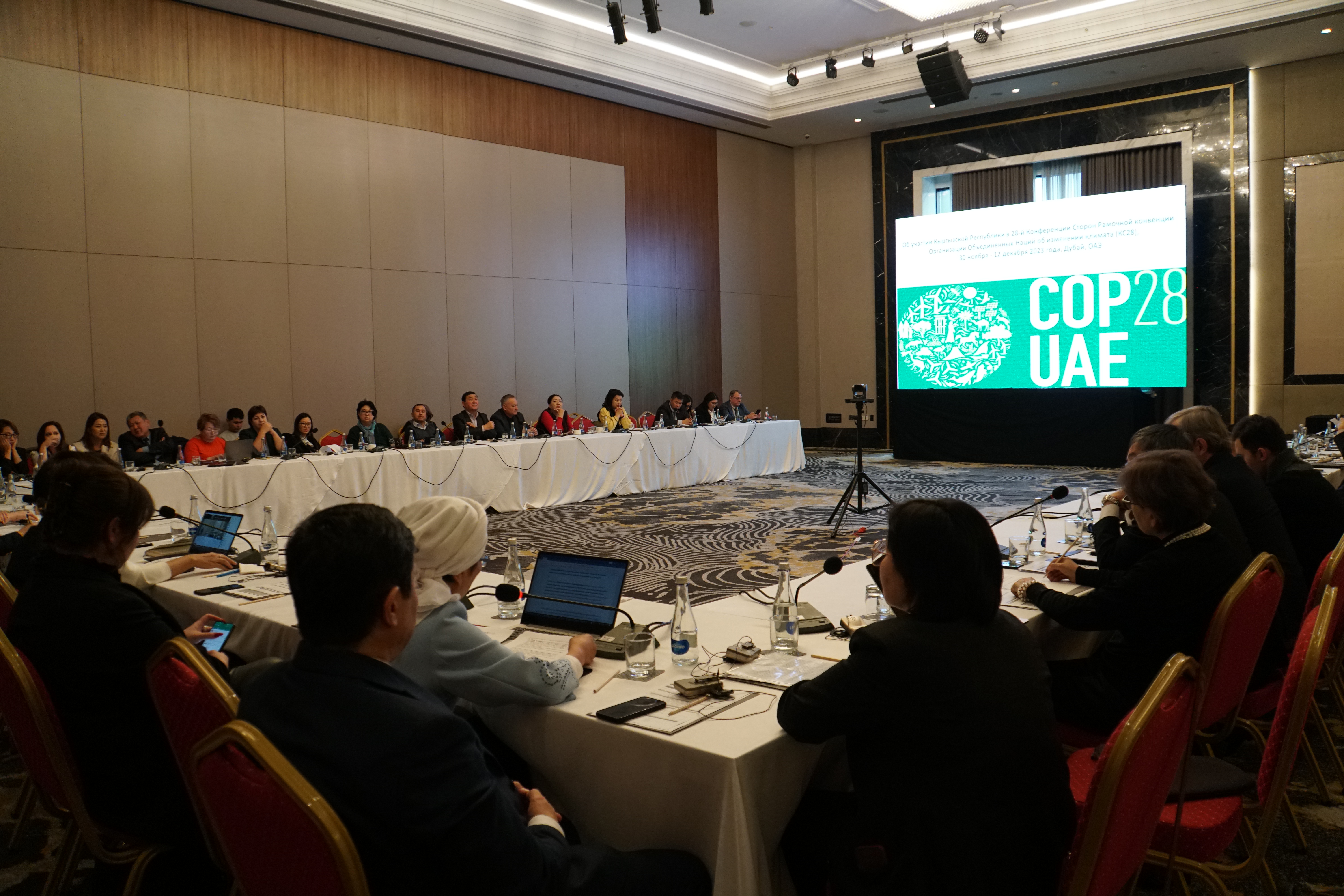

 Locations
Locations